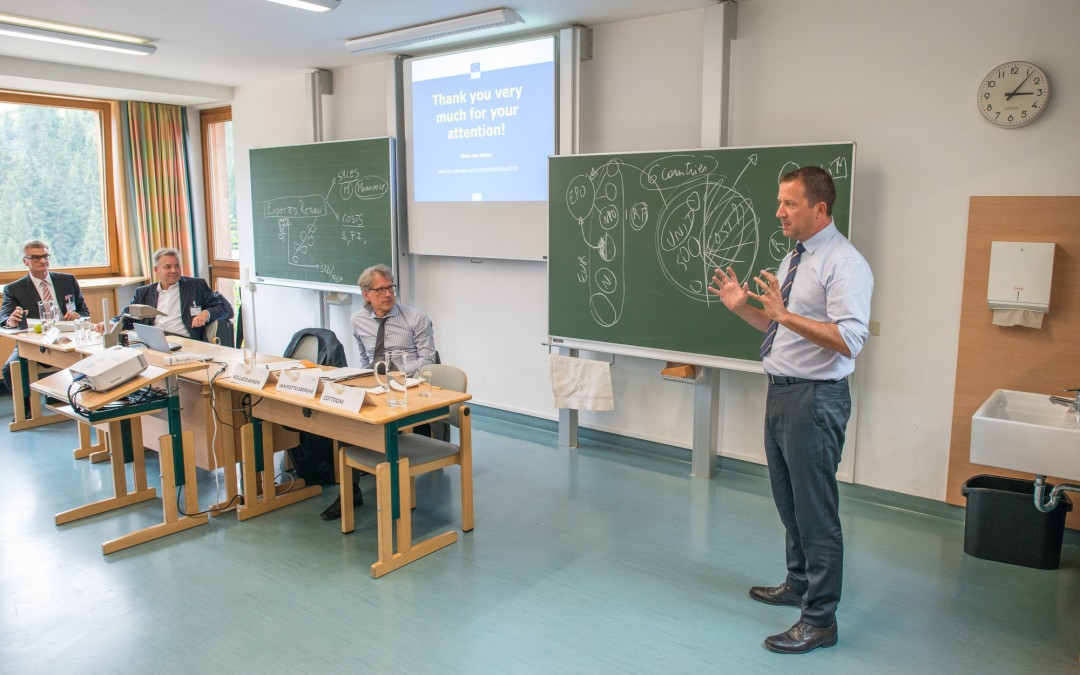At the renowned European Forum Alpbach in Austria, an EIB Institute organised panel with representatives of academia, industry and the public sector looks at the perspectives for the EU innovation policy.
The roundtable was moderated by Hubert Cottogni, European Investment Fund, and the panelists were Prof Bruno Van Pottelsberghe, Solvay Brussels School of Economics & Management, ULB; Dr Matthias Kollatz-Ahnen, Member of the “Innovation for Growth” Advisory Body of the European Commission, Senior Expert at PricewaterhouseCoopers and former Vice-President of the European Investment Bank; and Mr Martin Koch, Financial Engineering Unit of the Research DG, EU Commission.
Although under the next EU programming period (2014-2020), budget lines will be reduced overall, the innovation budget allocation has increased dramatically, reaching up to EUR 70bn and reflecting the overall EU response to the crisis. With a focus being put on research and development (R&D) and innovation, a broader market is being addressed, including SMEs and midcaps. This funding will be deployed via financial engineering instruments rather than exclusively grant-based methods, meaning that the EU’s countries and regions must have a framework of complementary and capable institutions, as discussed at the roundtable.
A well-functioning and efficient patenting system is also vital if investments in innovation are to be effective. A unitary patenting system will come into force on 1 January 2014. However, we cannot expect to see any real or immediate effect since the basic problems are still widespread, i.e. high administration costs, low protection and over-complicated procedures (with a 3-layer patenting system: national, EU and European).





